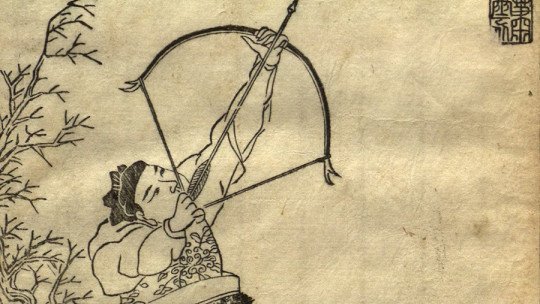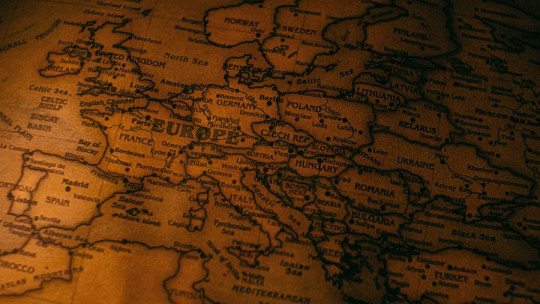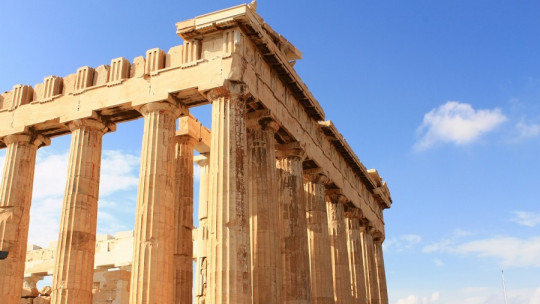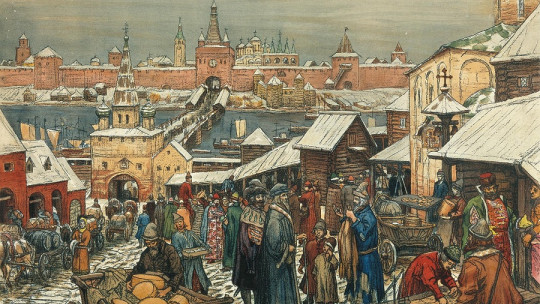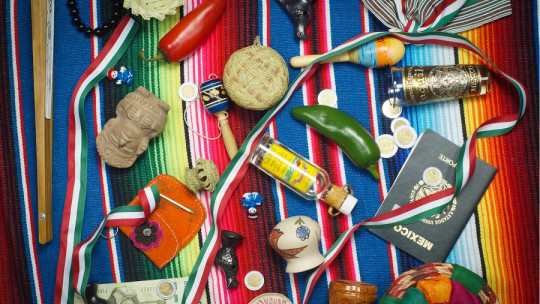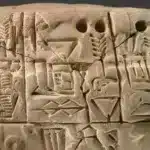Due, in large part, to the enormous Eurocentrism on which Western education has been based, China is often considered as a whole, a homogeneous block from both a linguistic and cultural perspective. Nothing could be further from the truth, of course. Between the north of the country, crossed by the Yellow River, and the south, bathed by the East China Sea, there are geographical, climatic and cultural differences that must be taken into account.
The official language of China is Mandarin Chinese, spoken by 78% of the population, which serves as a standard and communication language. However, in China there are many other languages, such as Cantonese Chinese (which is spoken in the south and has up to 60 million speakers), or Chuang, with 15 million.
Therefore, China is not a block that must be considered homogeneously. Each of these languages is related to a different ethnic group, with its own cultural background and ancestral beliefs. Next, We present to you 5 myths from the mythology of Ancient China.
5 myths from Chinese mythology that you should know
Long before Buddhism took root in China, and also before Confucianism and Taoism, there existed in Chinese territory a series of myths similar to those that other ancient peoples might have, where gods and men intertwined their destinies and through which the Chinese sought to explain the origin of the world and the meaning of life and death.
Today, much of these traditions have been lost or are remembered as popular folklore. We propose a journey through 5 of the best myths from ancient Chinese mythology that talk about the origin of the world, love, life and death.
1. Of gods, giants and men
The Chinese myth of the creation of the world starts like all other mythologies: in the beginning only nothing existed. In this chaotic context, the first being appeared, the god Pangu, who created order from chaos with a brutal blow of an ax. Curiously, and despite being a god, Pangu died after completing his creative mission, but (and this is also very common in various mythologies) the world as we know it was formed from his dead body.
After Pangu, the typical creator god who then retires and ignores his creation (also common in all mythologies), come the new generations of gods, the giants and the monsters. One of these primeval goddesses, Nüwa, was responsible for the arrival of humans to earth. Kuafu was one of the first giants who, obsessed with sunlight, tried to hunt it when it set in the west. But the extraordinary warmth of the sun burned him inside, and, desperate, he crossed all of China looking for water. On his journey, Kuafu left the rivers without a drop of water. However, he was still thirsty and, furthermore, he felt really bad.
When he reached the sea, he lay down on its shore and died; His enormous giant body gave shape to the mountain range called Mount Txiu. This is another very common idea in myths around the world: the giant who dies and from whose sacrifice mountains appear. Without a doubt, the magnificence of these geographical reliefs so impressed primitive humans that they imagined that they could only be the work of giants.
2. The first hero and the hunt for the suns
There is no mythology that does not have a plethora of heroes who do wonderful jobs and embark on epic journeys. In reality, all of them represent the human ambition to leave its context and advance towards a more glorious reality, and many times they symbolize a path of improvement. We know the Greek heroes; probably the Vikings too, but what about the Chinese heroes?
According to tradition, the first Chinese hero was Yi, the immortal archer. In those days, all of China was dying of thirst and hunger, and the god of the East, Dijun, asked Yi to come down to earth, armed with a bow and many white arrows that the god himself had given him. It turns out that the cause of the terrible drought was that the ten sons of Dijun were running through the sky without any order or concert, and you can imagine how much heat ten suns can give in the sky.
Yi began to shoot arrows from his divine bow and, one by one, the suns began to fall. As they lost strength, the air became cool and the grass began to grow again. However, Dijun realized that if the hero killed all the suns, the earth would be plunged into something much worse than a drought: an eternal frost, where no plants would grow and no living being could live. Determined to prevent it, he stole one of the arrows from Yi’s quiver, and, thus, one of the ten suns remained in the sky, where we can still see it today.
3. Divine and human loves
In mythologies around the world, stories of relationships between gods and humans abound, often passionate and very emotional. Chinese mythology is no exception. Among its many stories there is a very beautiful one that tells the love story between a shepherd and a goddess of the heavens.
This pastor, whose name, curiously, we do not know, was loved by everyone for his honesty and goodness of heart. However, his fortune was small and he had to work from dawn to dusk to earn his daily bread. One night he sat down to cry next to the ox, and it took pity on him. The animal confessed to him that he was, in reality, a heavenly ox, and that, if he did what he asked, his luck would change forever. The pastor, astonished, nodded and said nothing.
Advised by the ox, The next day the shepherd approached a peaceful and shady pond near his house. Soon some beautiful girls came down from the sky, undressed and immersed themselves in the water to bathe. The shepherd was amazed by the beauty of all of them; especially one, who seemed beautiful like a star. Following the ox’s instructions, he hid the girl’s clothes and waited. When her sisters dressed and flew into the sky, the girl, who could not find her clothes, remained in the lake.
The pastor took advantage of this moment to approach her and ask her to be his wife. She also seemed in love and, sweetly, accepted. Once they were married, she confessed to him that she was the goddess of weaving and could help him start a small business. And so it was. The goddess’s fabrics were a success and the marriage was very happy.
The Great God in heaven missed his daughter and, when he found out that she had married a simple shepherd, he became angry. She sent her guards to look for her; The young man could do nothing against them and he had to see how his wife left crying towards heaven again. However, the shepherd was a brave man and, furthermore, he was deeply in love with her, so he was not going to allow his happiness to be taken away from him. So he left for heaven with his two children, who also missed his mother.
The Great God arranged a great river in the sky so that the shepherd could not cross. That river is none other than the Milky Way, which separated the lovers forever. However, moved by the tears of his daughter, he allowed the spouses to meet certain days a year… just when a fine rain (the weaver’s tears) covers the world.
4. Of demons and protective spirits
One of the pillars of ancient Chinese mythology are protective or guardian spirits, which not only protected humans and living beings in general, but also everyday objects such as household utensils. As in other mythologies, Chinese mythology does not describe a clear line between gods and spirits, but, whatever the case, the population had to respect these guardians and make offerings to them.
In a similar way to Roman tradition, the guardian spirits of the door were very important because they guarded the house from all evil. In fact, to prevent demons (in which Chinese society deeply believed) or non grata people from entering through the door, paintings representing terrifying soldiers were usually placed on both sides, as if to instil fear in whoever wanted to enter.
One of the related myths says that the emperor could not sleep because, in addition to being sick, the demons around him made a deafening noise. The emperor asked two of his best warriors to watch over his sleep and, from then on, he was able to sleep peacefully. Since then there has been the custom of painting both warriors on the entrance door, so that the demons, who are scared by the soldiers, do not dare to pass through.
5. The maker of the nuptials
In popular Chinese tradition, it was believed that marriages were negotiated by a god, known as the “Old Man of the Moon.” Precisely with him was a young man named Wei, who, as he was an orphan, did not have parents who could find him a wife. Wei consulted with the old man if the daughter of the governor of his region would be a good woman for him, but the Old Man of the Moon flatly stated that she was not the person destined for him. When Wei asked him where his future wife was, he showed her an image of a three-year-old girl, dirty and poorly dressed, who lived in obvious poverty.
Outraged, Wei sent a henchman to kill the girl. Unable to do so, he only wounded him between the eyes, but Wei ended up forgetting about the case. Especially when, fourteen years later, he married the prudent and beautiful seventeen-year-old daughter of the governor of Xiangzhou. They were both happy, but he was suspicious of her wife’s past, since, in her eyes, she always carried a piece of cloth that she never took off, not even to sleep.
When Wei finally asked her what she was hiding, she was honest with him and told him her story: as a child she had been attacked in the center of her forehead and, as a result, had been left with a scar that she covered out of shame and decorum. Astonished, Wei discovered that his wife was, in fact, the poor girl that the Old Man of the Moon had predicted for him, and he understood that human beings cannot change the future arranged by the gods.

